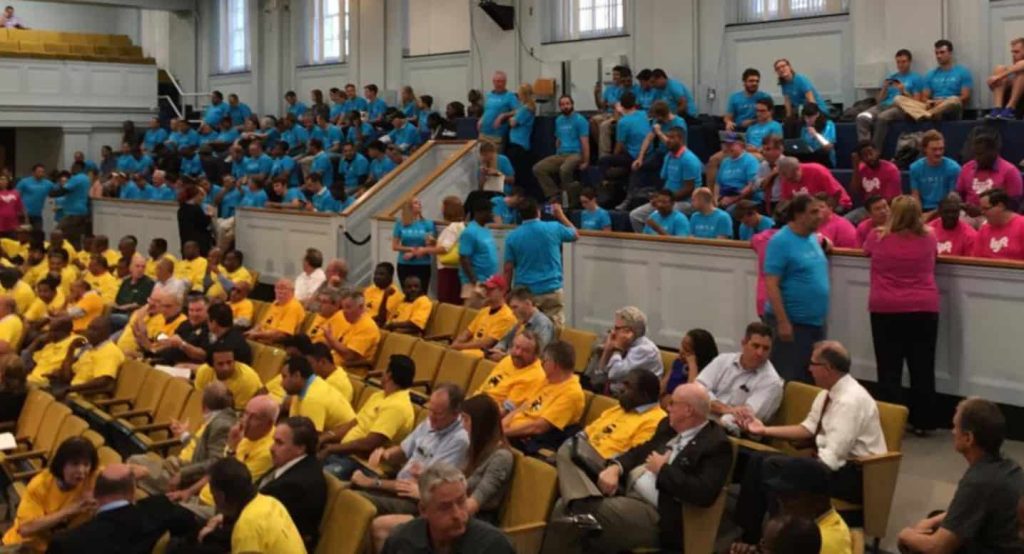The rise of transportation network companies like Uber and Lyft has catalyzed a global dialogue, from France to China, and across the United States. There have been protests in the streets that pit traditional taxicabs against innovative ride-sharing companies as if it was a zero sum game. In all the rhetoric, we’ve lost sight of the people who are impacted the most and what’s best for consumers and the innovation economy.
Fueled by one of the world’s greatest concentrations of research and academic institutions, Massachusetts has been at the forefront of innovation for over 300 years, from the founding of the United States to successive waves of innovation and leadership, in agriculture, maritime trade, industrial mechanism, and information technology.
This latest era has witnessed technology innovation transforming our world with the birth of the telephone, the Internet, the mutual fund, computational biology, genomics, telemedicine, online education, and more.
Our political leaders work hard to leverage our regional strength. We are a leading technology and innovation state, and with this comes both economic power and an opportunity to use technology innovation to create more new, flexible job opportunities, particularly for women and people in lower-income neighborhoods. Ride-sharing represents just one more in a long line of innovative business models that is being embraced by our forward-looking populace. And, beyond the improvements in convenience, safety and sustainability, these innovative services contribute to the brand of our innovation economy which is a powerful magnet for attracting and retaining talent, investments and companies to the region.
A wide variety of transportation options provides both visitors and residents of our commonwealth with choices and flexibility, supporting the Massachusetts innovation brand and providing service and employment in underserved neighborhoods. Studies show that the availability of transportation is the most significant factor in lifting communities out of poverty. The addition of ride-sharing has decreased wait times, increased safety and accountability, and provided flexible work options for people across the region.
Ride-sharing is also good for the vast majority of taxi drivers. With the tremendous demand for drivers and transferability of skills, the rise of ride-sharing companies like Uber and Lyft has created greater employment opportunities for drivers. And the transportation network company technology platforms mean that drivers set their own schedules as they wish rather than working fixed shifts.
The ride-sharing model tips the balance in favor of customer-centric drivers and service, and disrupts the entrenched regulatory scheme built around a scarcity of medallions rather than service or safety of consumers. As a leading technology innovation state, we should support innovative business models as important to our brand and to the thousands of drivers who have taken advantage of the high quality, flexible jobs that have been created.
Fair policies around ride sharing and other disruptive technologies can become one of the first building blocks of a true innovation agenda for our state. The tech sector is eager to continue to help state and local lawmakers leverage technology to deliver vital services, and to create the talent and regulatory framework that will let innovation thrive in Massachusetts.
Tom Hopcroft is president and CEO of the Massachusetts Technology Leadership Council.
This post also appeared in the Boston Business Journal.

